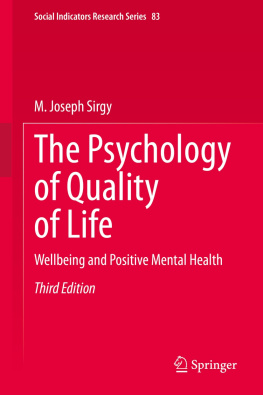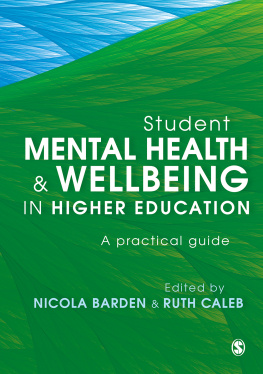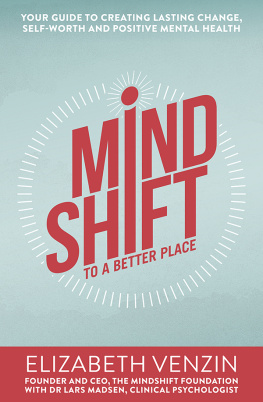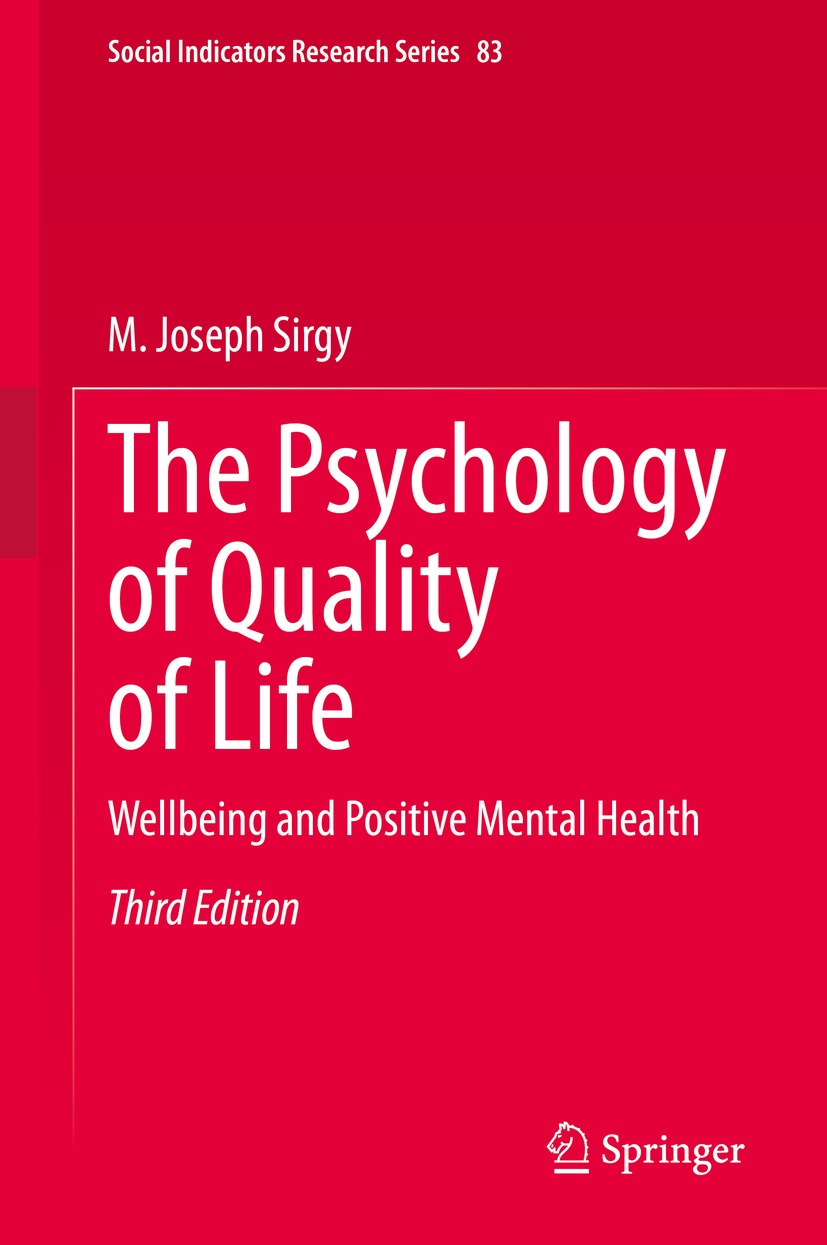Volume 83
Social Indicators Research Series
Series Editor
Alex C. Michalos
Faculty of Arts Office, Brandon University, Brandon, MB, Canada
Editorial Board
Ed Diener
Psychology Department, University of Illinois, Champaign, IL, USA
Wolfgang Glatzer
J.W. Goethe University, Frankfurt am Main, Hessen, Germany
Torbjorn Moum
University of Oslo, Blindern, Oslo, Norway
Ruut Veenhoven
Erasmus University, Rotterdam, The Netherlands
This series provides a public forum for authored and edited volumes on social indicators research. It is a companion series to the journal Social Indicators Research. The book series deals with problems associated with the quality of life from a broad perspective. It welcomes research on a wide range of substantive areas, including health, crime, housing, education, family life, leisure activities, transportation, mobility, economics, work, religion and environmental issues. The topics represented in this series cover and involve a variety of segmentations, such as social groups, spatial and temporal coordinates, population composition, and life domains. The series presents empirical, philosophical and methodological studies that cover the entire spectrum of society and are devoted to giving evidence through indicators. It considers indicators in their different typologies, and gives special attention to indicators that are able to meet the need of understanding social realities and phenomena that are increasingly more complex, interrelated, interacted and dynamic. In addition, it presents studies aimed at defining new approaches in constructing indicators. An international review board for this series ensures the high quality of the series as a whole.
Available at 25% discount for International Society for Quality-of-Life Studies (ISQOLS). For membership details please contact: ISQOLS; e-mail: office@isqols.org Editors: Ed Diener, University of Illinois, Champaign, USA; Wolfgang Glatzer, J.W. Goethe University, Frankfurt am Main, Germany; Torbjorn Moum, University of Oslo, Norway; Ruut Veenhoven, Erasmus University, Rotterdam, The Netherlands.
More information about this series at http://www.springer.com/series/6548
M. Joseph Sirgy
The Psychology of Quality of Life
Wellbeing and Positive Mental Health
3rd ed. 2021

Logo of the publisher
M. Joseph Sirgy
Virginia Polytechnic Institute and State University, Blacksburg, VA, USA
North West University, Potchefstroom Campus, Potchefstroom, South Africa
ISSN 1387-6570 e-ISSN 2215-0099
Social Indicators Research Series
ISBN 978-3-030-71887-9 e-ISBN 978-3-030-71888-6
https://doi.org/10.1007/978-3-030-71888-6
The Editor(s) (if applicable) and The Author(s), under exclusive license to Springer Nature Switzerland AG 2002, 2012, 2021
This work is subject to copyright. All rights are solely and exclusively licensed by the Publisher, whether the whole or part of the material is concerned, specifically the rights of translation, reprinting, reuse of illustrations, recitation, broadcasting, reproduction on microfilms or in any other physical way, and transmission or information storage and retrieval, electronic adaptation, computer software, or by similar or dissimilar methodology now known or hereafter developed.
The use of general descriptive names, registered names, trademarks, service marks, etc. in this publication does not imply, even in the absence of a specific statement, that such names are exempt from the relevant protective laws and regulations and therefore free for general use.
The publisher, the authors and the editors are safe to assume that the advice and information in this book are believed to be true and accurate at the date of publication. Neither the publisher nor the authors or the editors give a warranty, expressed or implied, with respect to the material contained herein or for any errors or omissions that may have been made. The publisher remains neutral with regard to jurisdictional claims in published maps and institutional affiliations.
This Springer imprint is published by the registered company Springer Nature Switzerland AG
The registered company address is: Gewerbestrasse 11, 6330 Cham, Switzerland
This book is dedicated to all quality-of-life and well-being researchers worldwide.
Preface
In 2002, I wrote The Psychology of Quality of Life that was published by Kluwer Academic Publishers. In 2012, the second edition of the Psychology of Quality of Life was published. Much research on quality of life and well-being had been published between 2002 and 2012. As such, the second edition of the book was a major overhaul of the 2002 book. Much more research on quality of life and well-being was published between 2012 and 2020, calling for a third edition. The references in each chapter are a testament to the quality and quantity of research conducted on the psychology of quality of life and well-being published during the last decade.
The third edition, like the second edition, is divided into six major parts. Part I is, essentially, an introduction. This part has three chapters. Chapter , I make a case for the importance of the research in the psychology of quality of life. I discuss much of the research showing the beneficial effects of happy people at work, health, and to society at large.
Part II of the book focuses on research dealing with objective reality. That is, I describe research showing how socio-cultural factors (Chap. ) influence the subjective aspects of quality of life. These conditions, essentially, reflect the actual internal and the external physical environment of the individual. This objective reality impinges on their hedonic well-being, life satisfaction, and Eudaimonia.
Part III of the book focuses on subjective reality. Objective reality ultimately translates into subjective reality, and in this context the individual transforms information from objective reality into subjective reality, which in turn influences the individuals sense of well-being. Subjective reality can be in the form of personality (Chap. ). I discuss not only how people process information from the objective environment but also how they manipulate this information that ultimately puts a dent into the subjective aspects of quality of life (hedonic well-being, life satisfaction, and Eudaimonia).
Part IV focuses on the psychology of well-being that is specific to life domains. In this context, I begin this part of the book with a chapter dealing with domain dynamics (Chap. ).
In Part V of the book, I review much of the research on special populations. Specifically, Chap. covers a potpourri of other population groups such as the disabled, drug addicts, prostitutes, emergency personnel, immigrants, teachers, and caregivers.
The final part of the book (Part VI) has two chapters. Chapter ), I offer my concluding thoughts by addressing the importance of the psychology of quality of life in the context of public policy. That is, I echo the overall sentiment by the vast majority of well-being researchers that public policy should be, at least in part, guided by well-being research. But also, I warn the reader that well-being research is not enough. The call to action is to broaden our approach in well-being research to incorporate other aspects of quality of life at higher levels of analysis (i.e., the group level, the community level, the societal level).












